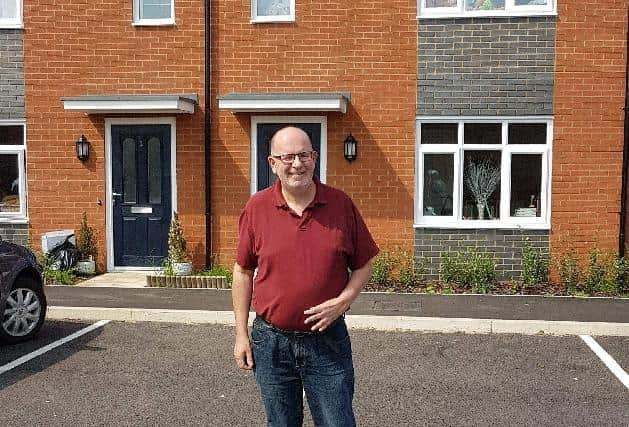This week's £20 a week reduction to Universal Credit will affect nearly 5,000 households with children in Milton Keynes
and live on Freeview channel 276
The £20 a week increase to Universal Credit and Working Families Tax is to be stopped on Wednesday.
The boost, designed to help families during the Covid pandemic, was received by 4,796 households with children in Milton Keynes.
Advertisement
Hide AdAdvertisement
Hide AdThese are concentrated mainly in the poorest areas of MK, including Netherfield, Coffee Hall, Beanhill, Fullers Slade, the Lakes Estate and Bradville, says MK specialist Nigel Long.


Nigel, a former Milton Keynes councillor for many years, runs Action Disability Training and Consulting, which offers training courses to companies and even councillors on disability equality, managing disabled staff and mental health and housing.
He says evidence from the Joseph Rowntree Foundation shows the £20 a week loss will reduce the income of 5.5 million families nationally by £1,040 per year.
It will pull 500,000 people into poverty and reduce the main out of work support to its lowest level since 1990
ever.
Advertisement
Hide AdAdvertisement
Hide Ad"It should also be noted that rates for benefits such as UC, WFTC and the Local Housing Allowance (LHA) were frozen between April 2016 and April 2020. This significantly reduced income to millions of households. Benefit levels were increased by 1.7 per cent in 2020."
The £20 per week uplift in UC and WFTCs was introduced in April 2020, to help struggling families during the pandemic. It had been due to end on 31 March 2021 but the government came under pressure to announce an extension.
Nigel said research has shown that 60 % of families who will lose as a result of the cut are working.
"Families with children (especially single parent families) and households with someone who is disabled or from a BAME community will be disproportionately impacted," he said.
Advertisement
Hide AdAdvertisement
Hide AdAreas with a higher proportion of the population receiving Universal Credit or Working Tax Credit also tend to have lower healthy life expectancy. The average loss to income for working age families in the 10% of local authorities with the worst health will be almost the twice the loss of those in the 10% of areas with the best
health.
Nigel said: "There is no doubt that the removal of the UC and WFTC uplift will hit many of the poorest households in society. £20 per week may not seem much to one of the billionaires, like the Chancellor, in the Cabinet running the country, but to low income households it is a lot of money when you have to choose between food or heating.
"In a hugely wealthy country like England this measure shows a callous disregard for the health and well-being of millions of lower income households.